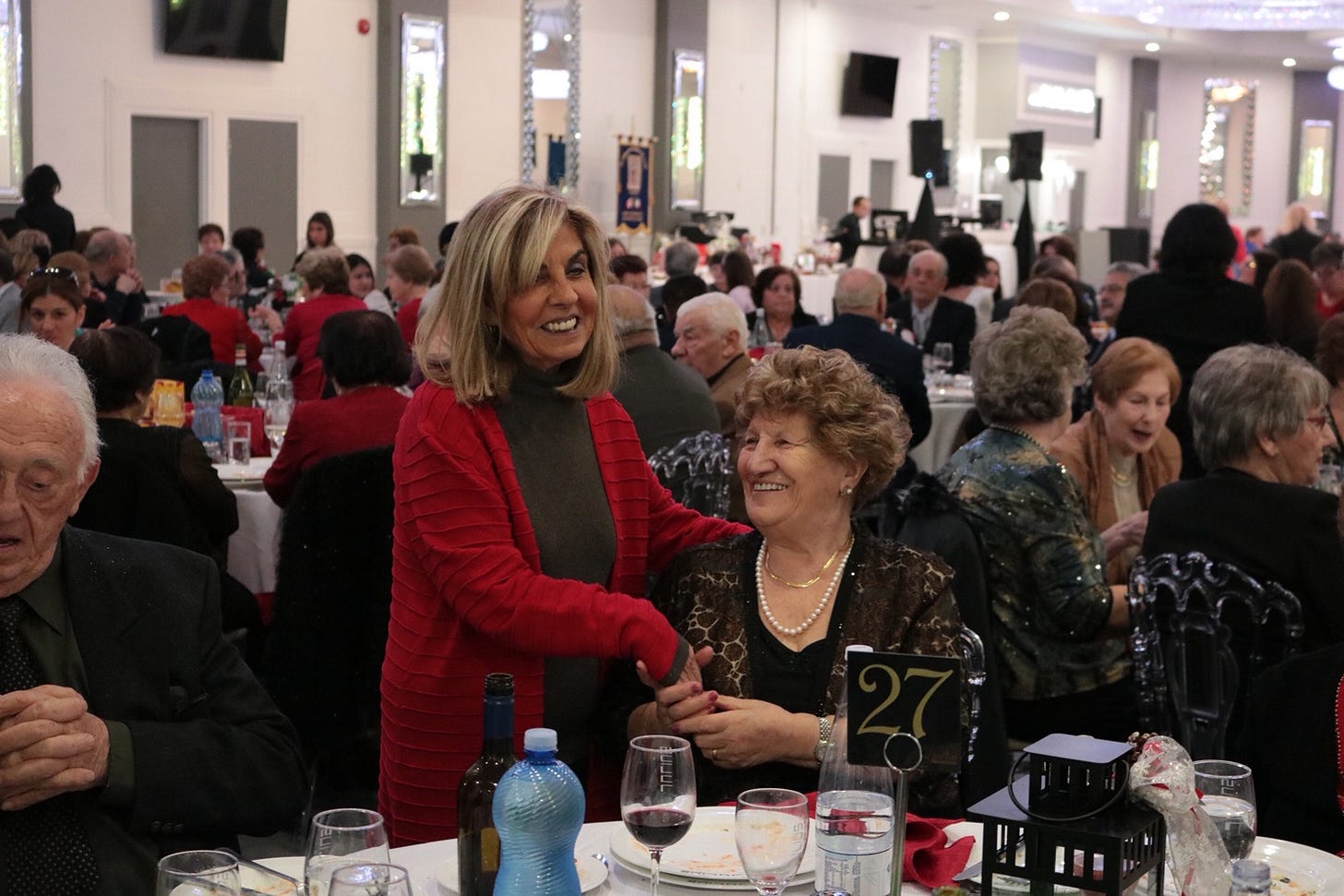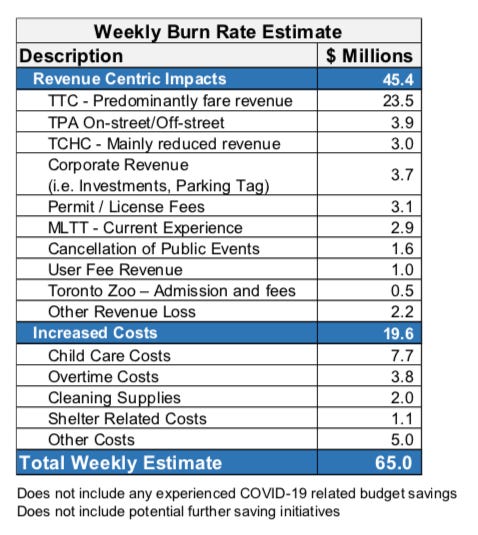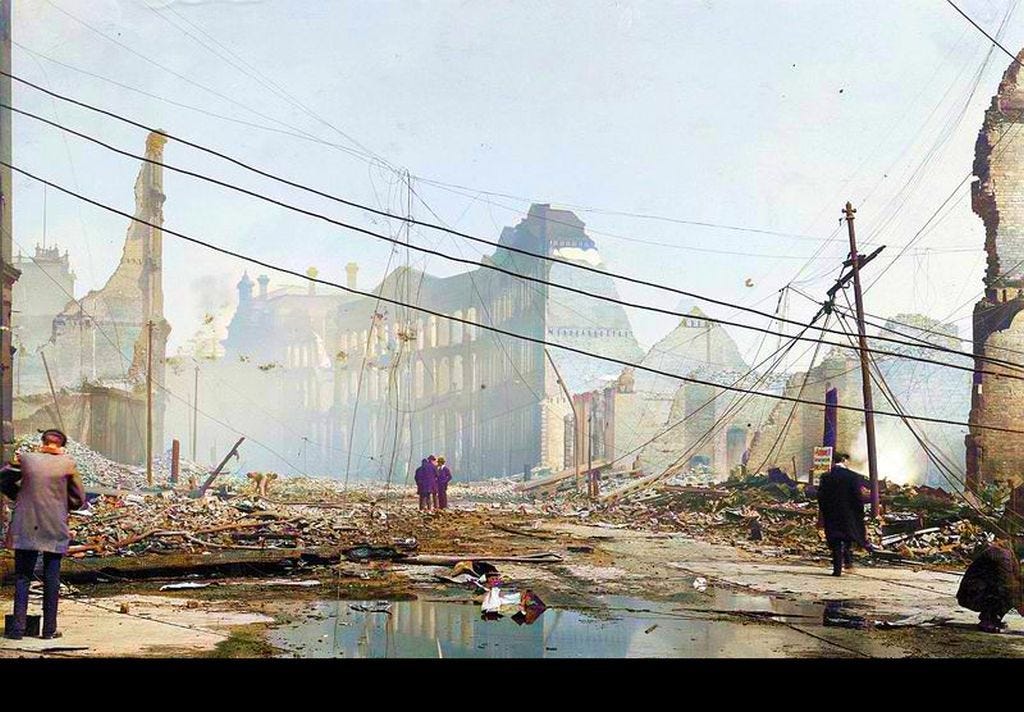Speaking with the Speaker
City Hall Watcher #67: A COVID-19 check-in with Councillor Frances Nunziata, Toronto's massive fiscal challenge & more!
Hello again. This week: another COVID-19 check-in, with one of the three members of Council who were in office during the 2003 SARS Crisis: Councillor Frances Nunziata. I spoke with the speaker about how she’s spending her days, the good things happening in her ward, her brag-worthy Council attendance record, and how we both miss watching Council meetings.
If you like City Hall Watcher, share it with a friend! And if you’re interested in becoming a subscriber, you can do so with this link for just five bucks a month or $50 a year — it’s a bargain and a deal.
You can also buy a subscription for a friend. It’s a good time to support independent journalism, if you can.
— Matt Elliott / @GraphicMatt / graphicmatt@gmail.com / CityHallWatcher.com
Watcher/Talker: A COVID-19 check-in with Councillor Frances Nunziata

Photo courtesy Frances Nunziata (taken long before the COVID-19 outbreak!)
I spoke with Councillor Frances Nunziata over the phone on Friday, April 17. I wanted to talk with Nunziata as she is one of just three members of Council — along with Councillor John Filion and Councillor Denzil Minnan-Wong — who served during the 2003 SARS crisis. I figured that would lead to some interesting perspective.
I also haven’t had much of an occasion to chat with Nunziata in my years of following City Hall — though I’ve spent a ridiculous number of hours watching her in her role as Council speaker — so this felt like a good time to make that connection.
This interview has been edited for length and clarity.
Matt Elliott: How are people in York South Weston (Ward 5) doing right now?
Frances Nunziata: Well, I mean, it’s difficult for everyone. They’re going through trying times. Most of the constituents that I’m speaking to, they’re doing this social distancing, they’re remaining indoors, but it’s very frustrating for a lot of them — especially the seniors. They’re having difficult times.
But they understand and they’re managing. I don’t know for how much longer. But it’s difficult times for everyone, for sure.
ME: What’s your day to day like? Obviously, it’s very different from what you would normally be doing.
FN: Well, with me normally being active and out there 24 hours a day practically, it’s difficult to be indoors. But what I have been doing is keeping in touch with all my constituents. So what I’m doing every day is that every e-mail or call that comes into the office at all — my staff are working from home — I’m calling all the constituents back up. All the e-mails that are coming in, I speak to them all personally.
What we’re doing as well is reaching out to all the constituents whose contact information we have and we’re calling each one of them asking them how they are and if they need any assistance. Working with all the agencies and trying to get volunteers. So it’s been very busy.
ME: Are you working exclusively from home?
FN: Yes, I spend most of the day speaking to constituents and responding to their concerns and asking them if they need any assistance.
So you just take the time to connect. Because a lot of them — especially the seniors — they’re alone. I think it’s so important for them to be speaking to someone.
Most of the complaints that we’ve been getting from constituents are parties in parks and playing soccer. So I know that we were giving out a number of tickets for that. Many of the calls I get as well are seniors asking for masks. They’re having a very difficult time buying masks. A lot of places that are selling masks are selling for three times the amount they’re worth, so I’m very disappointed — like $15 for one mask. That’s ridiculous!
And I’m very disappointed at some of these landlords that are evicting commercial tenants.
But what I am getting is tenants from Toronto Community Housing Buildings — I spoke to one yesterday — who are helping some of the seniors buy groceries, which is very nice. But one of the issues they’re having is that most of the grocery stores won’t accept cash, just credit cards. And, as you know, a lot of seniors and a lot people don’t have credit cards. So it’s making it very difficult.
But I’m really very impressed at how this community has come together and offered to help. We’ve get a lot of calls from people, asking how can we help? How can we volunteer? Which is amazing. I’ve had a call from Old Mill Cadillac wanting to donate a vehicle for community agencies to do deliveries. So we’re getting a lot of businesses that want to contribute. We’re all coming together.
ME: I’m hearing that from pretty much everybody I speak to. There are some things councillors are unhappy with — some people breaking the social distancing, some landlords being jerky with demanding rent and stuff like that. But there are a lot of positive stories.
FN: Oh, yeah. It’s amazing how we’re connecting and we’re helping each other when we know that there’s a lot of vulnerable people out there. And so I’m very pleased about how my constituents are coming together.
ME: One of the reasons I want to talk to you in particular is because you were one of three that were around in the SARS crisis in 2003. How does this compare to that?
FN: This is no comparison to SARS. I mean, the SARS crisis was concerning, but it wasn’t anything like the impact that COVID-19 has had on Toronto. We’ve never seen a contagion or impact like this in Toronto. With SARS, we didn’t have the closures, with thousands of people out of work and businesses closed. I mean, it was devastating with SARS, but I think with COVID-19 there’s no comparison.
ME: But are there things that you learned back then with the SARS crisis that have been helpful to you now?
FN: Well, I think there was a lot of public health information that we had that we were able to carry over for now. I mean with all the closures and preventive measures in place, now we have more of a comprehensive approach in response from all three levels of government, which is good. I’m pleased that all three levels are working together. There were a lot of lessons learned when we had SARS in 2003.
ME: I don’t want to be too optimistic, but we do seem to be having some success at flattening the curve a little bit. The mayor has talked some about how things will reopen and some of his priorities for recovery. When you look forward, what are some of the things that you’ll be really focusing on when it comes time to start talking about recovery?
FN: I think we’ll have to do that in phases. We’ll have to look at what nonessential services we can open in safe ways. I don’t think we want to step into it immediately. We have to do it gradually, because what we don’t want is for the virus to spread even further and then we’re back where we started.
I think what’s really devastating is hearing about all the long-term care facilities and the seniors that have the virus and that have passed away. It just breaks my heart, you know?
ME: Oh, absolutely. It’s devastating.
FN: I mean, my parents, my mom and dad were in a nursing home a few years ago and they passed away. It’s actually the same nursing home that [Premier Doug Ford]’s mother-in-law is in. And I was there every day visiting both of them. But now when you hear that the families are unable to visit their parents or their grandmother or grandfather. It’s awful. Like I said, my heart goes out to them. It’s just awful what’s happening.
ME: When you do finally get back to City Hall and we’re back to something approaching normal, are there things that you’re taking from this that you might be translated into policy?
FN: You know what? I don’t think we’ll ever be back to completely normal.
But there’s a lot of things that we should be looking at and preparing because none of us were really prepared for what’s happening. And I think that nobody expected this, but I think maybe we have to look long term at how we can improve the services and bring forth additional services as well.
ME: To increase some levels of city services?
FN: Well, now we know, and I think that we have to be prepared. So I think there’s a lot that we need to be discussing as a Council. There’s lessons from what we’ve been going through for the past few weeks about how we can improve in the future.
ME: Totally shifting gears. I recently crunched the numbers and found you have the best attendance record on Council, narrowly beating Councillor Gord Perks. Would you like to brag about that a little bit?
FN: [Laughing] Well, I I don’t think I’ve ever missed a Council meeting. Or a committee meeting. I’ve never missed any committee meetings. And I’m on a lot of committees Well, I have perfect attendance.
ME: You do. I’m sure you’re missing the regular day-to-day of being at City Hall.
FN: I really miss Council meetings. I really miss that.
ME: I miss them too. The last question I have for you: people across Toronto are stuck at home, maybe getting a bit bored. Any recommendations for things they could be doing, watching or reading right now?
FN: Well, you know, connect. Go on Skype. Speak to your family — your children, your grandparents. And with friends. Especially with friends, the people that you haven’t spoken to in a while. And stay active. Go out for a walk — keep your distance, of course.
But it’s difficult. It’s very difficult if you’re alone.
ME: Definitely. It’s weird. I feel like I’m talking to some people more than I was before this happened.
FN: It brings people together — and a lot of constituents they’re telling me that they’re getting the opportunity to do spring cleaning and gardening, where they would never have an opportunity to do that because they’re all so busy working. So they have time for doing that.
PREVIOUS COVID-19 COUNCILLOR CHECK-INS: Councillor Brad Bradford
More from Matt: on Toronto’s looming fiscal disaster
For the Toronto Star last week, I wrote about the impact COVID-19 is having on the City’s budget. In short, the impact is… very bad.
The City unveiled more detail about their fiscal challenge on Friday. You can see the City’s presentation here.
Here’s how the City breaks down the $65 million they calculate they’re losing for each of the COVID-19 response:

And here’s a very striking chart showing the source of the biggest hit to Toronto’s revenue: a drop in TTC ridership.

All told, the City forecasts a $1.5 billion budget hit, but that’s an optimistic scenario, assuming just a three-month lockdown period. If this continues to the end of the year, they are estimating the total bill could be $2.7 billion.
With all these new numbers, I’ve written a follow-up piece for the Star this week crunching those numbers, and looking a Councillor Joe Cressy’s push for an “Urban Marshall Plan.” Look for it in your newspaper this week.
BONUS: I was delighted to work with the fine people at Toronto Storeys to repurpose one of the stories from last week’s newsletter for their fine outlet.
In other news

Charts from today’s update to the Ontario COVID-19 projection model offer some encouraging news, especially when it comes to ICU capacity. If you haven’t seen the government’s charts, the full presentation is here.
Why IT investments matter: the Toronto Star’s David Rider tells us how Toronto Public Health struggled to make use of the province’s 15-year-old database system for case and contact-tracing data. The City decided to build its own system, but the roll-out came with some bumps: the province’s COVID-19 in Ontario report for Saturday came with a caution that “Due to technical issues, COVID-19 data from Toronto Public Health may be incomplete for cases reported after April 16, 2020.” Subsequent updates seem to have gone better.
The Toronto Star’s Jennifer Yang tells us about Richard Reid’s experience with COVID-19, which led to him being intubated and put on a ventilator. Essential reading to understand the seriousness of this virus.
Reddit user Bruce-M has made a well done but also terrifying timelapse video of COVID-19 outbreaks in Toronto long-term care homes and other health facilities.
If you were wondering how a pandemic affects the roll-out of photo radar, the Star’s David Rider has word that Toronto’s system, which was supposed to start charging speeding drivers any day now, has been put on ice.
There’s obviously a huge amount of competition on the Toronto street sweeping beat, but no one covers it better than CBC’s John Rieti. He tells us about the City’s plan to spend $300,000 contracting out street-sweeping work.
For the Toronto Sun, historian Mike Filey looks backs at the fire that destroyed much of downtown 116 years ago. A reminder that Toronto has survived devastation before and will again. This photo took my breath away:

The week at Toronto City Hall
WEDNESDAY: 🏆 Bid Award Panel contract award of the week: $1.1 million for construction work related to modifying the streetcar track and watermain at Richmond East & Church.
FRIDAY: 🏗 There’s a special meeting of the CreateTO Board set to take place via teleconference at 11:30 a.m. No agenda published yet.
City Hall Watcher #67
Thanks for reading! Today’s issue is dedicated to the people of Nova Scotia. I don’t have any words, except to say I’m with you.
Next week: some more OPEN DATA CHALLENGE content. See you Monday at 5!




